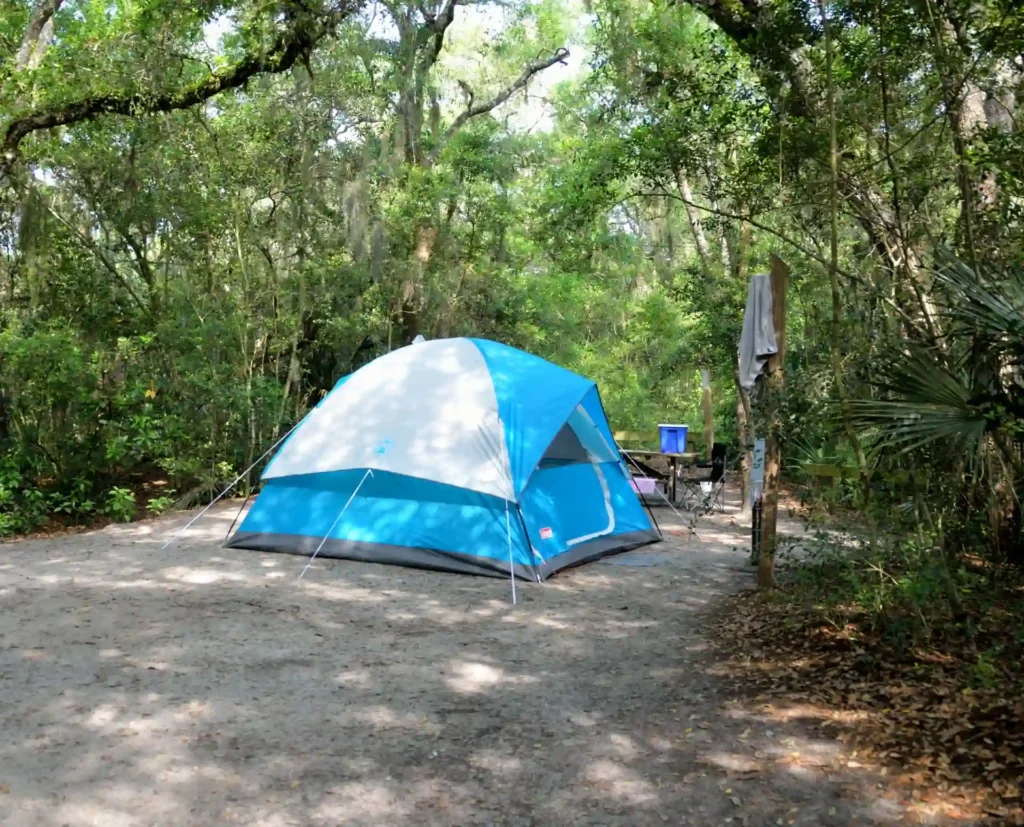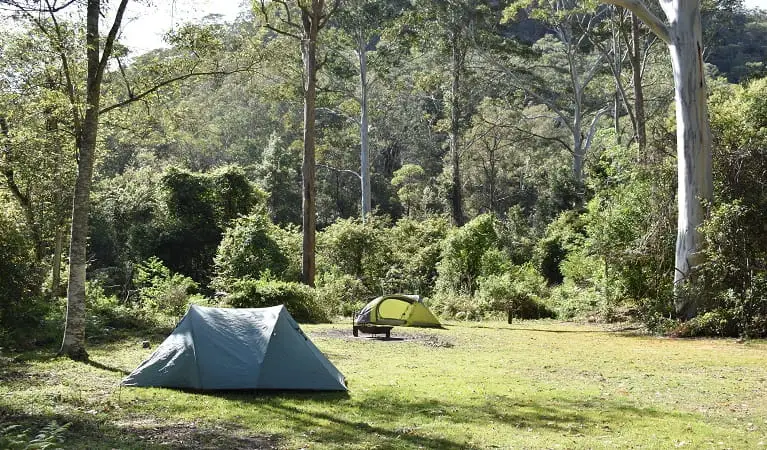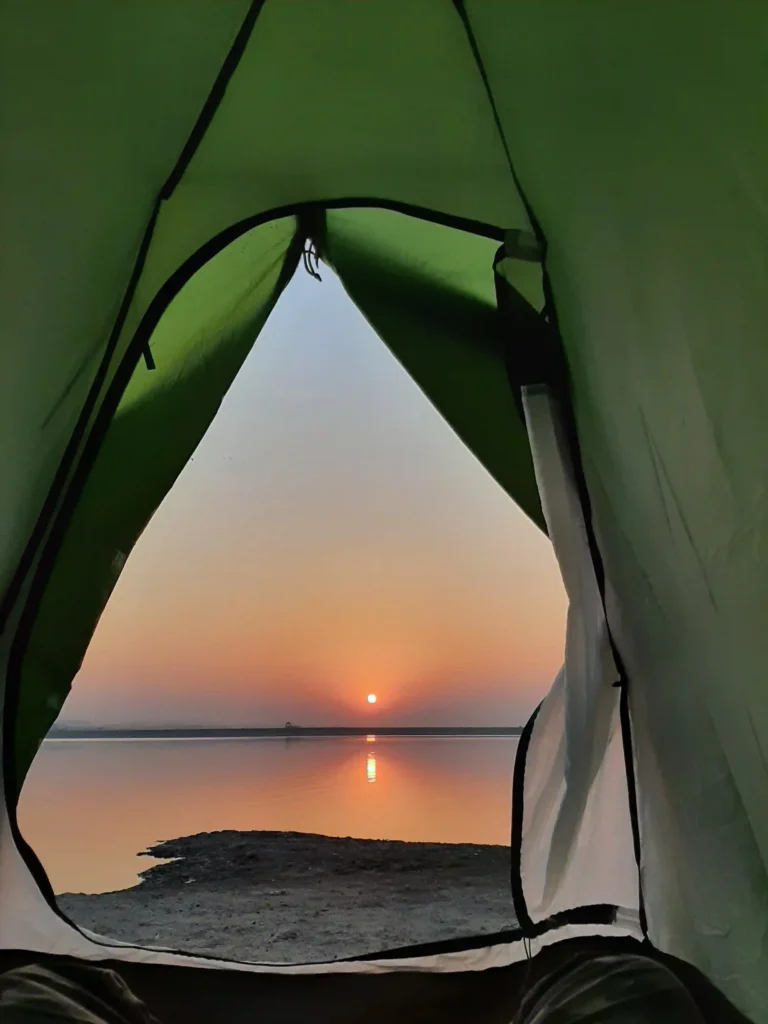First Day at Camping
Is Camping Alone Safe?
As a young camper, I vividly remember the first time I went camping alone. You may have camped with a group or your family before, but I am writing this article as a roadmap for young campers who are venturing out for the first time or who are planning to camp alone.
If you have never been camping alone, it might seem a bit dangerous or scary. Trust me, it’s not as daunting as it sounds. The sunset and the perfect sky that accompany the silence, the opportunity to listen to my own thoughts in a quiet and calm manner, waking up to the first rays of the morning; just talking about it makes me want to go camping again.
With a few principles and preparations, camping alone or for the first time can be a truly tremendous experience. Here are some things to consider on your first camping night:
Make Preparations Before Leaving
First of all, you need to research your camping location in advance. Depending on the season, you should find out what you need to know about the area. Are you going to a facility, or will you be alone in nature? Accordingly, you need to learn about the wildlife, what to be mindful of depending on the season, and most importantly, the weather on the day you plan to go camping.
Make sure that you take the right equipment with you according to the season and weather. Tents, sleeping bags, and food and drinks for the duration of your stay are most crucial. I usually take my camping chair, a book, and a flashlight too. If there is no prohibition in the area where you will be camping, consider taking equipment to light a fire.
Prepare wisely and ensure that you don’t need to take tons of clothes for camping for one night. You only need to take one spare set for emergencies. Since you will go alone and you will carry all the equipment yourself, don’t take anything that will add extra weight, especially if you are going to a place you can’t reach with your car and need to hike.
When hiking, carrying too much weight usually makes me sweat, so I prepare myself accordingly. I recommend you do the same, especially since sweating in nature is not wise.
Setting up Camp
Next, we arrive at the campsite, and the real adventure begins. First, let’s choose the spot where you will pitch your tent. Ideally, it should be a place sheltered from the wind. If there is a small hill or rocks and bushes that can block the wind, you can set up your tent near them. If you are planning to light a fire, ensure it is set up at least 12 feet away from your tent to prevent wind-carried ashes from reaching it.
If there is a water source nearby, set up your tent on dry ground close to water source. This will be particularly beneficial if you plan on outdoor cooking.
Depending on the type of your tent, calculate the time needed to set it up in advance and start early. It is very challenging to pitch a tent after sunset. I personally use the Orionquick tent, which takes less than 5 minutes to set up.
Make sure to place and organize your belongings correctly inside the tent. It might be tempting to throw everything in haphazardly due to fatigue when you first set up, but trust me, an organized space will really help when you are packing up the tent and campsite.



Safety First
When camping alone, ensuring your safety is paramount. Here are some essential safety tips to consider:
Proper food storage is crucial to avoid attracting wildlife to your campsite while camping alone. Use airtight containers and store your food away from your tent, preferably hung on a tree branch or in a bear-proof container if you’re in bear country. If you encounter wildlife, remain calm, do not feed the animals, and slowly back away while keeping your eyes on the animal without making sudden movements.
Building and maintaining a campfire safely is critical when you are camping alone. Choose a spot that’s away from trees, bushes, and other flammable materials. Make sure the area around the fire is cleared of debris. Always have a bucket of water or sand nearby in case you need to extinguish the fire quickly. Never leave your campfire unattended, and fully extinguish it by dousing it with water and stirring the ashes until cold before leaving the site or going to sleep.
Familiarize yourself with basic first aid techniques and ensure your first aid kit is well-stocked and within easy reach. Your kit should include items such as bandages, antiseptic wipes, adhesive tape, scissors, tweezers, pain relievers, and specific medication if you have known allergies, like antihistamines for bee stings or an epinephrine injector for severe allergic reactions. Knowing how to handle minor injuries can make a significant difference in your safety while camping alone.
Enjoy Your Environment
When you are alone in nature, it is as important to enjoy the environment as it is to respect it. Before you set out, research any natural wonders in the area you plan to visit or check for recommended hiking routes.
If the weather permits, consider going for a swim, or spend time observing the night sky—meteor shower nights offer a spectacular display. Personally, I enjoy sipping a glass of wine to the soothing sounds of nature when I go camping alone. If you have other ideas on how to make the most of your solo camping trip, feel free to share them with us. If you provide some great suggestions, we might even offer some special discount codes as a thank you.
Nightfall
As the day winds down, securing your campsite for the night is crucial. Ensure your tent is properly closed to prevent insects and small animals from entering. Double-check that all food is stored securely and that no trash or food scraps are left around the campsite, as these can attract wildlife. Extinguish any campfires completely; never leave a fire smoldering as you head to bed, as it can flare up again or spread.
For evening activities, stargazing is a serene and splendid way to enjoy the outdoors. If the sky is clear, lay back and watch for constellations and shooting stars—bringing a star map or using a stargazing app can enhance this experience. Other relaxing activities might include writing in your journal, listening to the sounds of nature, or simply reflecting on the day’s adventures.
Camping Alone
Camping alone offers a unique opportunity to reconnect with nature and yourself. By preparing properly, setting up a secure campsite, prioritizing safety, and taking the time to enjoy your surroundings, you can ensure a rewarding and memorable experience. Remember, the key to a successful solo camping trip lies in careful planning and respect for the environment.
Camping Alone Checklist
- Preparations Before Leaving:
- Research the camping location and local weather.
- Pack necessary equipment: tent, sleeping bag, food, drinks, camping chair, book, flashlight.
- Take only essential clothing to minimize weight.
- Setting Up Camp:
- Choose a sheltered spot to pitch your tent.
- Ensure the campfire is safe and at a proper distance from the tent.
- Organize your belongings inside the tent for ease of access and packing up.
- Safety First:
- Store food in airtight containers away from the tent.
- Maintain a safe campfire and have extinguishing materials ready.
- Keep a well-stocked first aid kit and familiarize yourself with basic first aid.
- Enjoying Your Environment:
- Explore natural wonders and hiking routes.
- Engage in activities like swimming, stargazing, and enjoying quiet moments with nature.
- Securing the Campsite for the Night:
- Check that the tent is closed and secure.
- Store all food securely and clean up any leftovers.
- Completely extinguish the campfire before sleep.
By following these guidelines and using the checklist as a guide, you can enhance your camping experience, making it not just manageable but truly enjoyable. Whether you’re a first-timer or a seasoned solo camper, the beauty of nature awaits to be discovered and cherished. Safe travels and happy camping!
You can support us by following us on social media and be informed about more tips and tricks about camping.















0 Comments